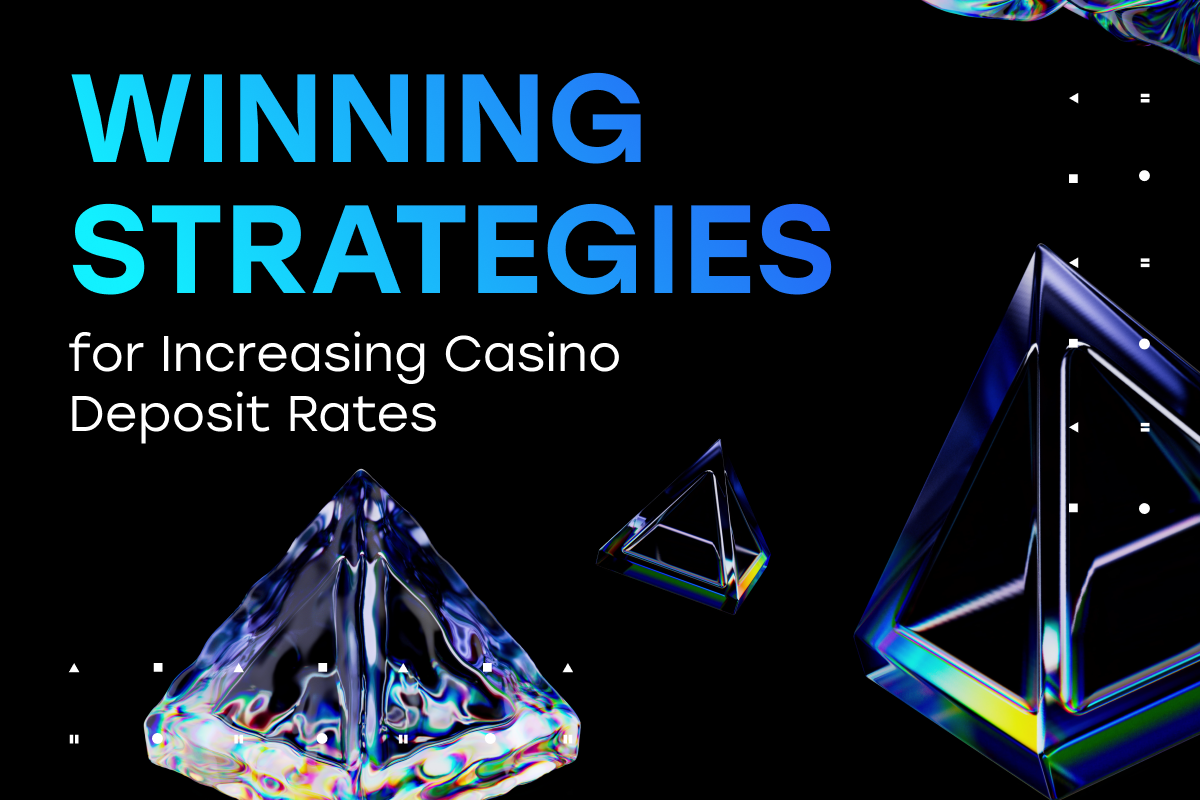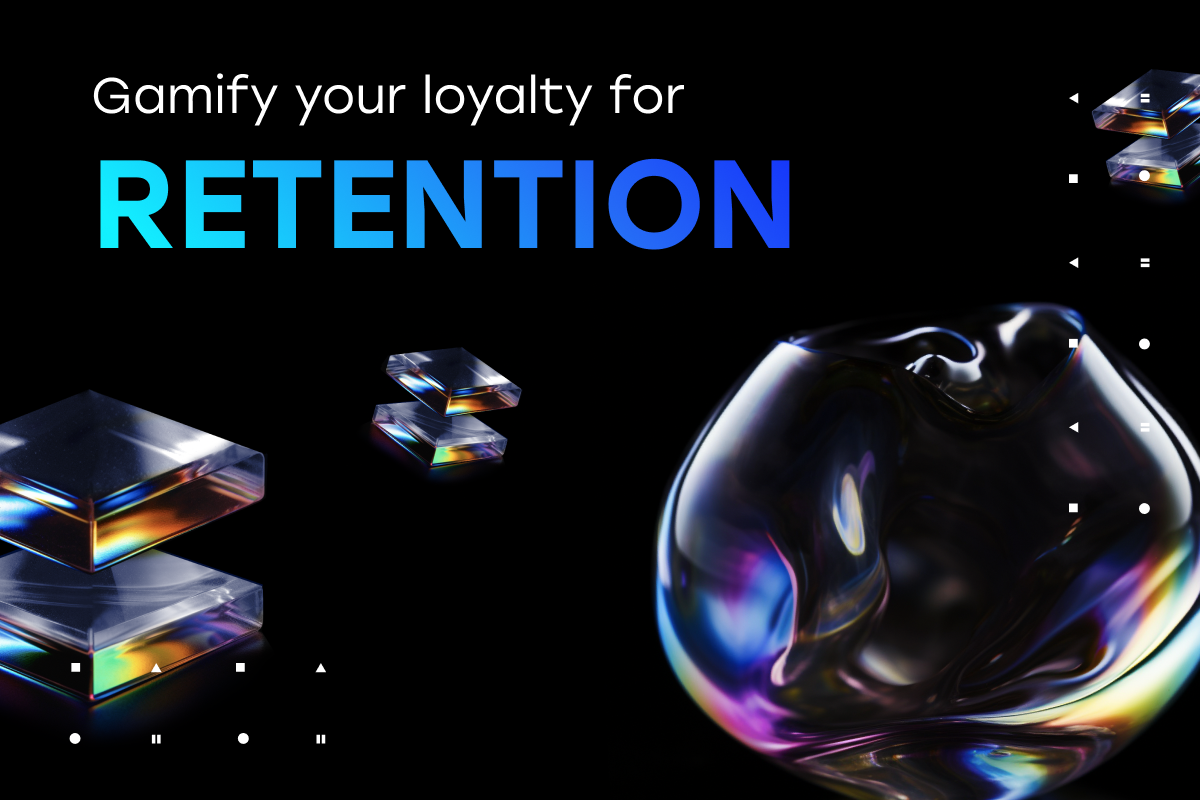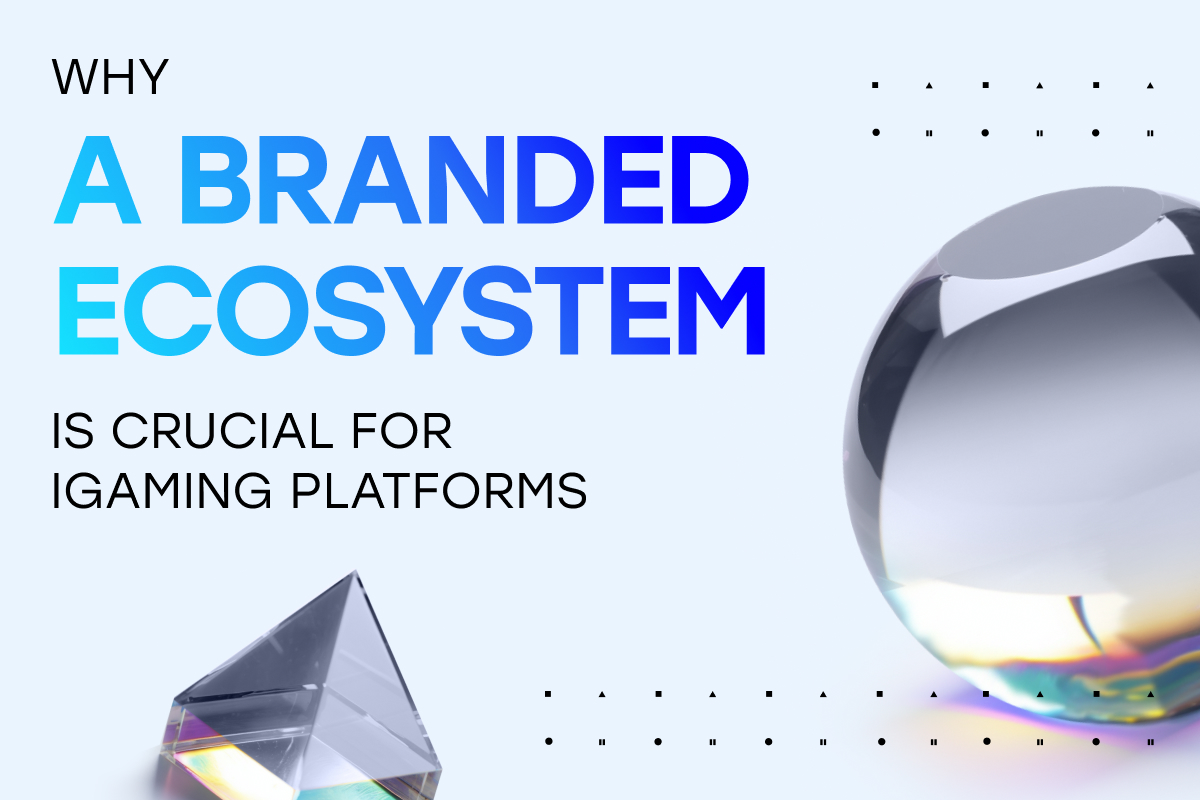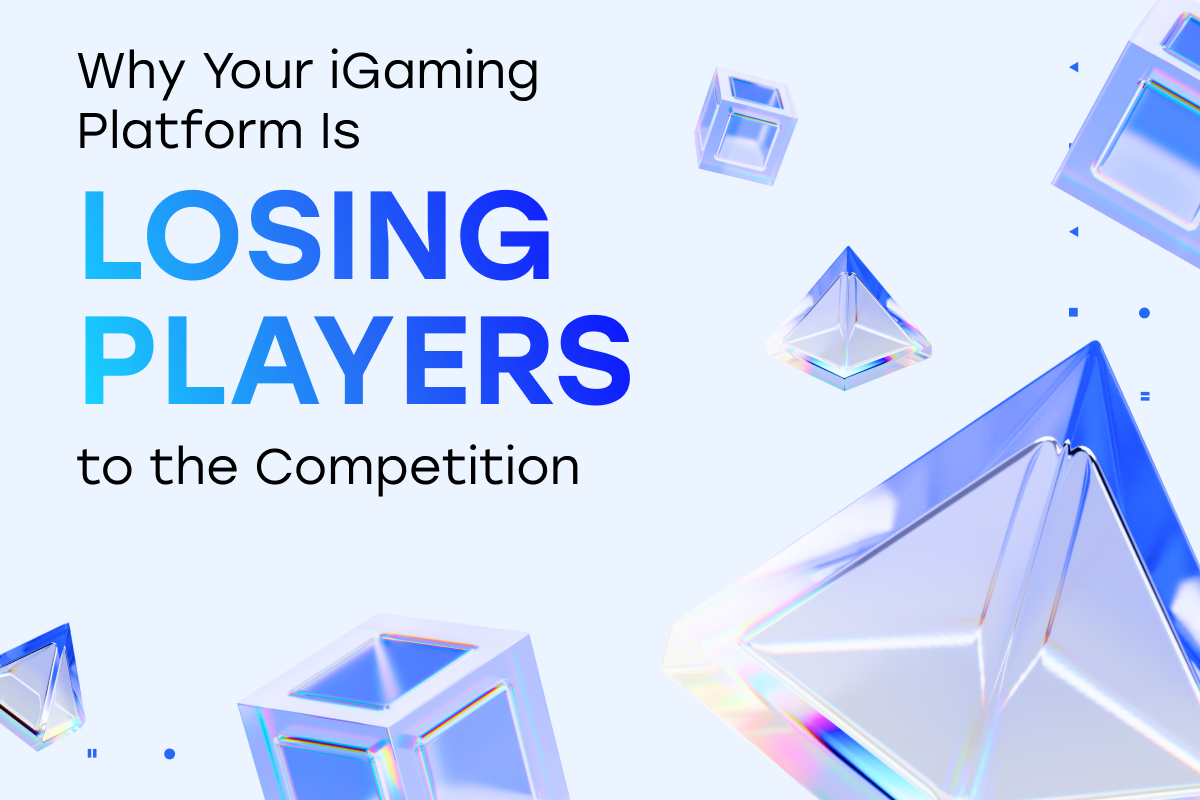Web 3.0 in Business Insight: Blockchain ≠ Crypto

Since Web 3.0 technology appeared in public, words such as blockchain and crypto became massively popular. And, somehow, they mistakenly became nearly interchangeable. There is a thought that blockchain is useless without crypto, whereas in reality blockchain is used in nearly every sphere of human life and actually has lots of benefits.
In this article, we will explain the difference between these definitions and show how both of these innovations can be used in many kinds of business, particularly in online gambling.
Blockchain and crypto definitions
A blockchain is a structured database of records that are based on the principle of distribution. In contrast to a standard spreadsheet, a blockchain may contain far larger amounts of data, such as records of transactions, organized into “blocks”. Bare in mind, that transaction is not related just to cryptocurrency here, though we are used to seeing this word only in crypto-related topics. A transaction can be any fact of putting data into the database.
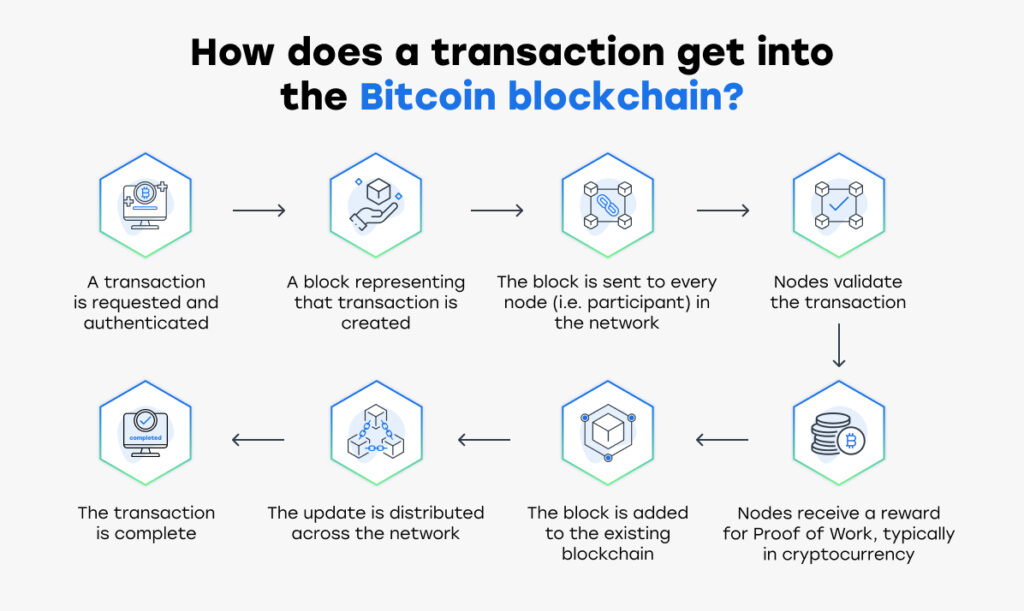
Any movement of goods in logistics is a transaction, any COVID certificate added into the database of an airline is a transaction, and so on.
A “distributed ledger” or several computers are used to distribute the blockchain blocks. Each block is “chained” to a previously filled block after it exceeds its storage limit, at which point a new block is put to use.
There are different types of algorithms or protocols of consensus, that ensure that each transaction is verified. But regardless of this type, blockchain does not have the requirement for a central clearing organization. It means that there is no boss of a blockchain, there is no authority that can rig the transactions, and add or delete them. Once the transaction is in the blockchain, it’s there forever. There’s an exception – private blockchains that have a system of access levels. These blockchains are used by companies to enhance their effectiveness. Examples of such blockchains can be projects on the Microsoft Azure system.
Basically, blockchain is the technology that enables the existence of cryptocurrency, among other things. Crypto can be called a byproduct of blockchain technology. It’s the same as saying ‘Is the internet the same as Facebook?’ — no, the internet is a technology that allows a lot of websites to work, and Facebook is just one of them.
How can blockchain be used in business?
Because every transaction in a blockchain is verified and can’t be edited once placed, and because every transaction can be traced, it is the most transparent way to store any data. Therefore, the usage of blockchain allows for:
– Decentralization
– Immutable records (thus, enhanced transparency)
– Greater security
– Faster settlement
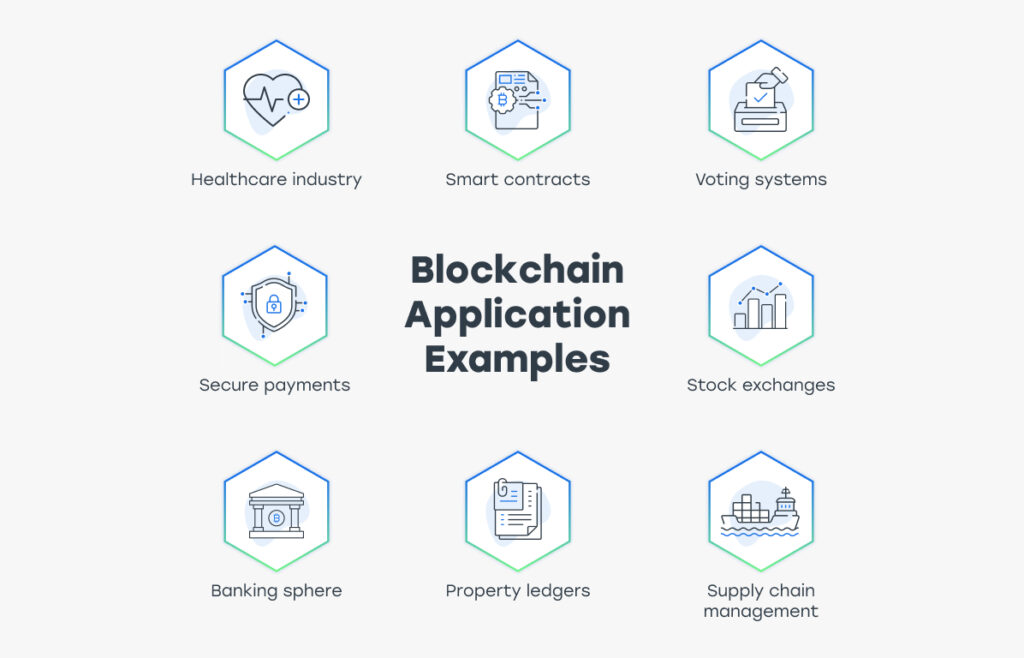
Which makes this technology attractive and adaptable to pretty much any industry despite its business goals. Let’s take a look at just several of them.
Audit
Blockchain essentially provides a permanent record of transactions, creating a clear trail for internal and external audits. It guarantees accuracy and addresses the issue of obtaining records from several dissimilar sources.
Trading
Whether trading securities or commodities, blockchain tends to make faster trades. A process that was previously completed over the course of several days is confirmed and completed in just a few minutes thanks to the distributed nature of the technology, substantially expediting the overall experience.
Smart contracts
Smart contracts give businesses a method to automatically manage lots of transactions, like those that cross supply chains. Without disclosing confidential or proprietary information, they can be used to interconnect services across several enterprises.
Supply chain management
The supply chain of a manufacturing corporation, for example, can be tracked by a blockchain within an enterprise. Blockchain technology might be used, for instance, to track the transportation of a product from a factory to a warehouse and finally to a retailer.
Voting
Votes can be sent over a blockchain in an impartial, accurate, and secure manner, just like money. Blockchain can (and already does) fundamentally transform contemporary ideas of democracy and increase the reliability of election outcomes by serving as a platform for consensus-building among groups, communities, and even entire countries. This can have a massive political impact.
Blockchain case studies
Let’s take a look at some mind-blowing real-world examples of how blockchain can be beneficial for businesses.
Renault uses blockchain to improve compliance
Before being put on the market, a car must satisfy both internal and external compliance standards. To make sure that everyone builds following the new standards, a change in legislation needs to be notified downstream to suppliers and suppliers of suppliers. Renault, therefore, required a platform that operated transparently across the ecosystem to guarantee compliance.
Renault and IBM worked together to develop the first extended compliance end-to-end distributed blockchain platform for component traceability and internal and external regulatory compliance in the automobile industry.
Marco Polo transformed supply chain transactions
Through the integration of supply chain ERP systems and the creation of an irrevocable contract for the parties, Marco Polo Network made use of blockchain technology to give exporters and importers a platform to transparently communicate delivery data under certain conditions (for example, money transferred when goods are received by the importer).
The initiative may do away with the requirement for third parties to resolve “trust issues”. However, as the platform enhances openness, third companies are also involved and profit from using the Marco Polo Network solution.
Nestle saved their reputation and market share
In 2008, Chinese parents lost faith in powdered milk for babies by Nestle when 300,000 newborns contracted melamine poisoning. In order to save the market share, Nestle was seeking strategies to convince Chinese parents about the quality of its newborn feeding product, NAN A2.
Nestle teamed up with Techrock, a Chinese tech company, to create a public blockchain platform integrated with a mobile app. As a result, parents could verify the ingredients, place of origin, and packaging details of NAN A2 powder with their mobile phones. This eliminated counterfeits and ensured the parents of the product’s quality.
Various airlines use blockchain for better customer experience
There are several examples here:
– Air France is testing a blockchain-based COVID passport
– British Airway is trialing blockchain facial recognition technology for passengers
– Etihad Airways is looking into a blockchain travel platform
– Lufthansa starts the initiative called BC4A – Blockchain for Aviation
– Singapore Airlines uses blockchain-based loyalty program
Political and social impact
Besides of business, blockchain can be used even in such initiatives as documenting war crimes. Years ago there was an initiative from Hala Systems and ConsenSys to build a blockchain solution during the Syrian war that sent the signed meta transactions directly to the public Ethereum blockchain to make sure that the information has not been tampered with and/or modified. In 2022, a new need appeared – to document Russia’s war crimes in Ukraine. Starling Lab has developed a blockchain framework to securely capture, store and verify digital content to meet the technical and ethical challenges of establishing trust in digital records coming out of Ukraine.
With all of that being said, we can clearly see that blockchain can find usage in pretty much any sphere of our lives. Including iGaming, of course.
Blockchain in online gambling
If you are here for iGaming blockchain solutions, there’s definitely something to show you – our blockchain-based marketing tool for online casinos, Trueplay.
What exactly can a blockchain solution give to iGaming?
- The trustworthy system between parties without relying on the facilitation of a central authority or intermediary
- Every transaction in games is logged and stored on a blockchain that can’t be edited
- The technology allows for a permanent, immutable, and transparent record that all parties engaged in the transaction may inspect and verify.
What is Trueplay and why blockchain?
As you’ve already found out, blockchain does not equal crypto, but it gives a great coalition with crypto that can be used in iGaming. Blockchain is not just a trendy technology that we picked up and implemented to follow the fashion or hype. Blockchain helps whitewash online gambling and make it more attractive to players. And we at Trueplay took maximum advantage of blockchain technology in order to offer online casinos a perfect way to attract new players and retain existing ones.
Trueplay is an iFrame widget, easily installed and managed without the need for developers. With the help of the widget, online casinos can use unique loyalty programs that boost retention and other key metrics while rewarding players in crypto tokens and giving them the transparency they’re looking for in online gambling. Read more about our loyalty programs here.
If you’re interested to find out more about our product you can book a personalized call with our manager to see the demo and check how it can improve your KPIs and bring you more profit.
